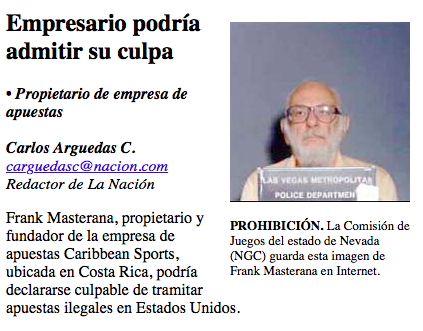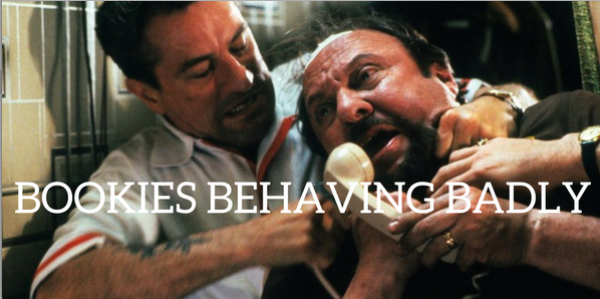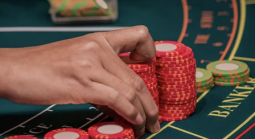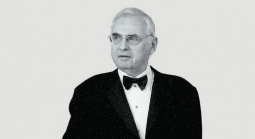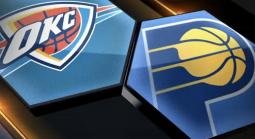There has only been one offshore bookmaker who has ever been listed in the Nevada Gaming Control Board's List of Excluded Persons, better known as the "Black Book."

That bookie is the infamous Frank J. Masterana Sr., who owned and operated offshore sportsbook Caribbean Sports and who died in 2009 at age 80.
Masterana is not the latest bookmaker to have his tale told in Gambling 911's ongoing series "Bookies Behaving Badly" because he was in the "Black Book."
It's because Caribbean Sports was a massive scam operation that stiffed hundreds of sports bettors out of thousands of dollars.
And when Masterana died, so did any hopes those bettors had of ever getting their winnings from Caribbean Sports.
Masterana was born in 1929 in Canton, Ohio, the year of the Stock Market Crash and the location of the Pro Football Hall of Fame.
That would become a twin irony as bookie Masterana would earn most of his money booking bets on pro football and his operation, Caribbean Sports, would eventually crash.
When he was in his 20s, in the 1950s, Masterana moved to Las Vegas and became involved with bookmaking, which was then still illegal in Nevada.
A bookie his entire adult life, Masterana took bets via telephone from all over the U.S. and eventually racked up bookmaking arrests and convictions in five states and served several stints in prison.
In 1988, because of those bookmaking convictions, he was placed in the "Black Book" and banned for life from ever entering any Nevada casino.
If he even set foot in a casino's coffee shop or even its parking lot, he would be subject to arrest.
So Masterana, like other busted bookies before him, decided the time was right to move offshore.
He relocated to Santo Domingo, the capital of the Dominican Republic, and started taking sports bets by phone from his established customers in the U.S.
He was out of reach of U.S. authorities.
Masterana also established dozens of walk-in sportsbooks throughout the country, which were legal in the Dominican Republic and similar to the ones that exist in Las Vegas today.
Then, in the mid-1990s, Masterana formed Caribbean Sports and started taking sports wagers from the general public.
He advertised in national sports magazines and even set up a website to publicize his operation, but the technologically-challenged Masterana never took bets over the Internet, only by phone.
At first, Caribbean Sports appeared like a legitimate operation.
Bettors who won their wagers were able to collect their winnings.
But like so many before him and after him as well, Masterana's operation eventually went south, and we don't mean it relocated to Venezuela.
It started stiffing its customers.
When a customer who had won money would call Caribbean Sports and ask Masterana for a payout, the only thing doled out were excuses.
In 1998, the Las Vegas Sporting News, a weekly national newspaper devoted to handicapping and sports betting, broke the story that the owner of Caribbean Sports was a "Black Book" member.
The newspaper later reported how a Caribbean Sports customer from Canada was owed thousands of dollars by Masterana, which the bookmaker refused to pay.
When LVSN intereviewed Masterana about the Canadian's claim, the mob-connected bookie threatened the reporter who was interviewing him.
LVSN would go on to report about numerous other Caribbean Sports customers who were owed money by Masterana.
Eventually, Caribbean Sports was forced out of the Dominican Republic by local authorities and it relocated to Costa Rica, where its payout performance was no better--customers continued to get stiffed.
A few years later Masterana was a stiff, literally.
He died in the Dominican Republic, where he had continued residing even after Caribbean Sports moved to Costa Rica.
At the time of his death, Masterana owed hundreds of customers thousands of dollars.
Caribbean Sports was a scam and Masterana was a sham.
And that's why he's the latest example of a bookie behaving badly.
By Tom Somach
Gambling 911 Staff Writer
-
